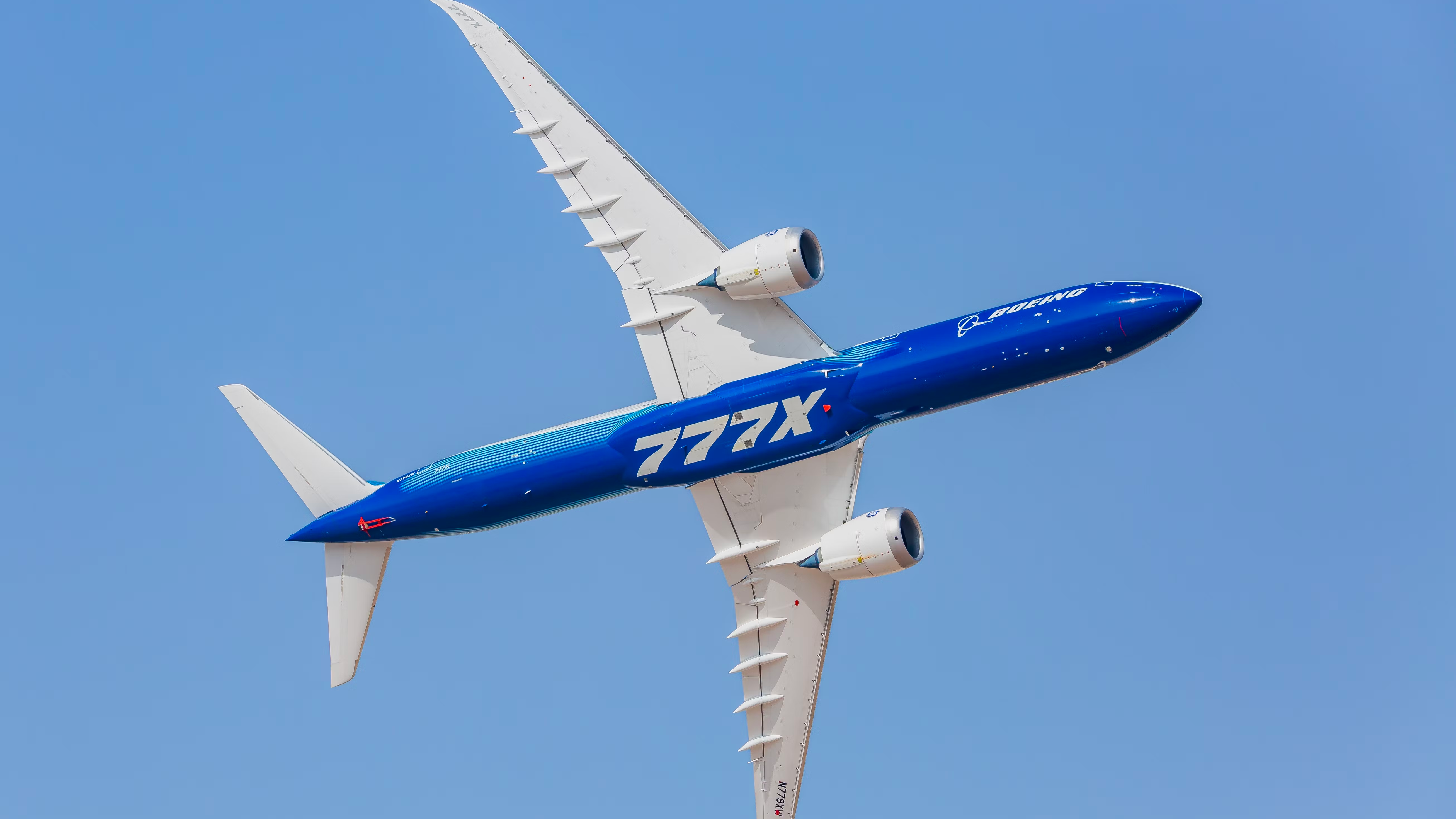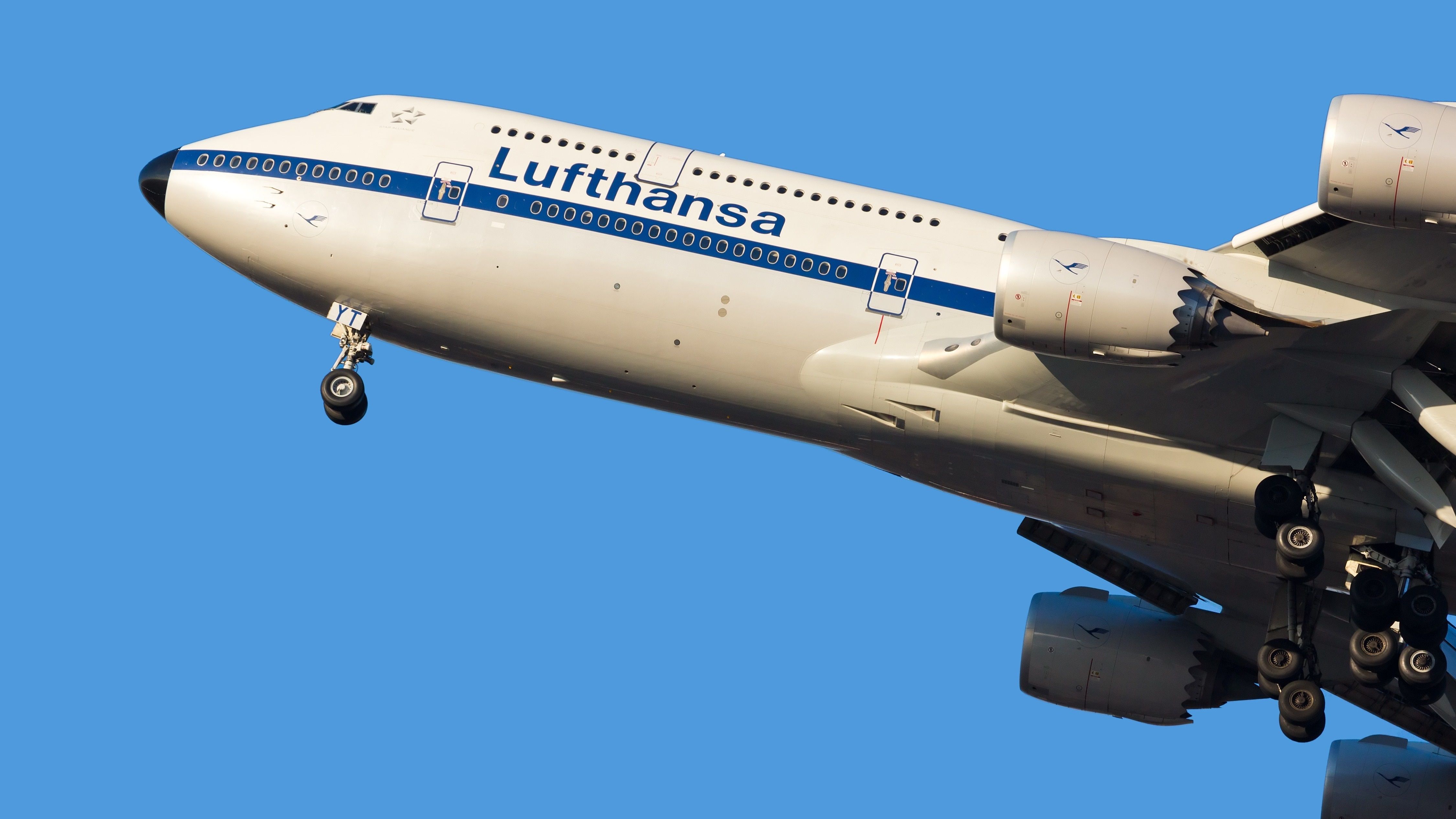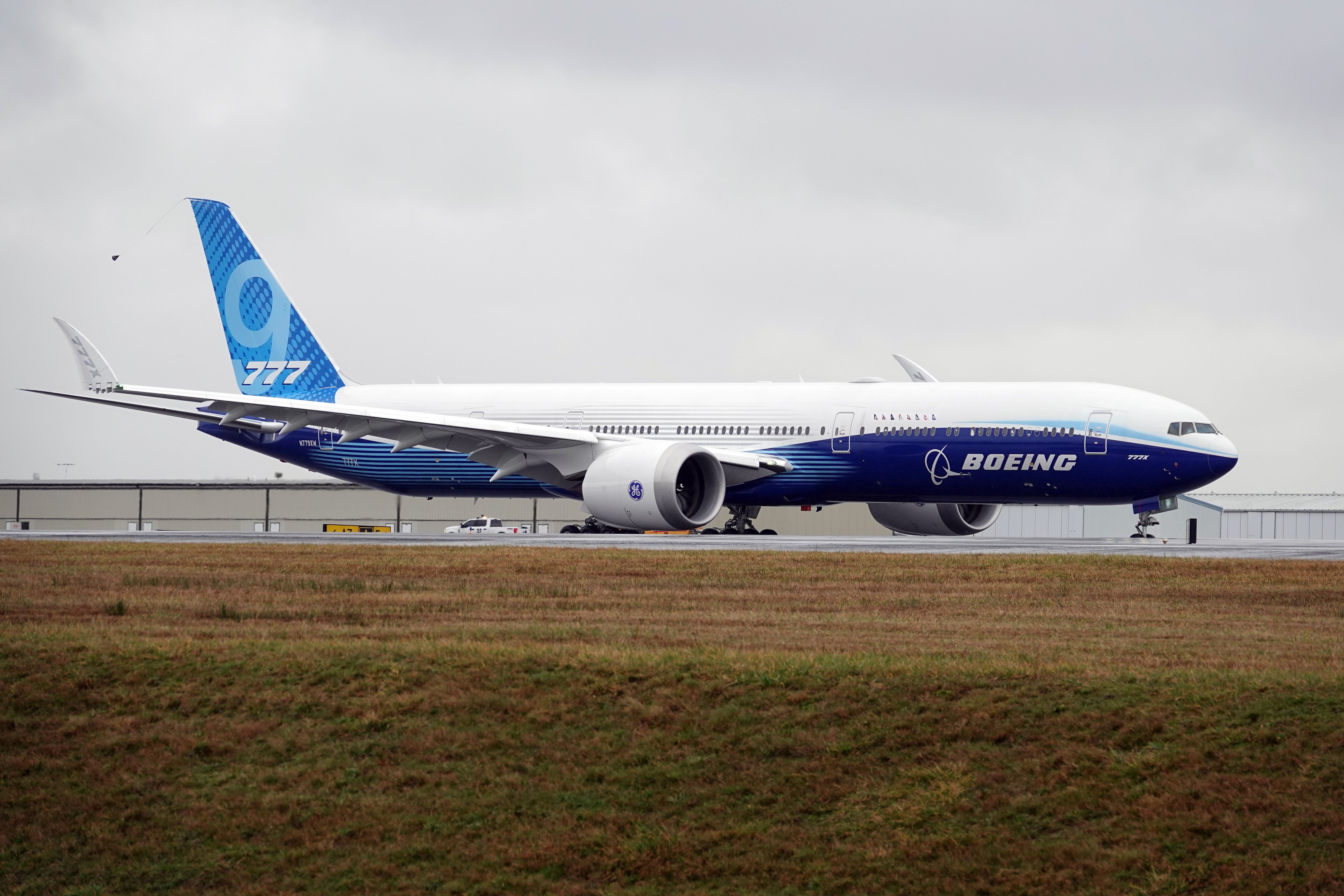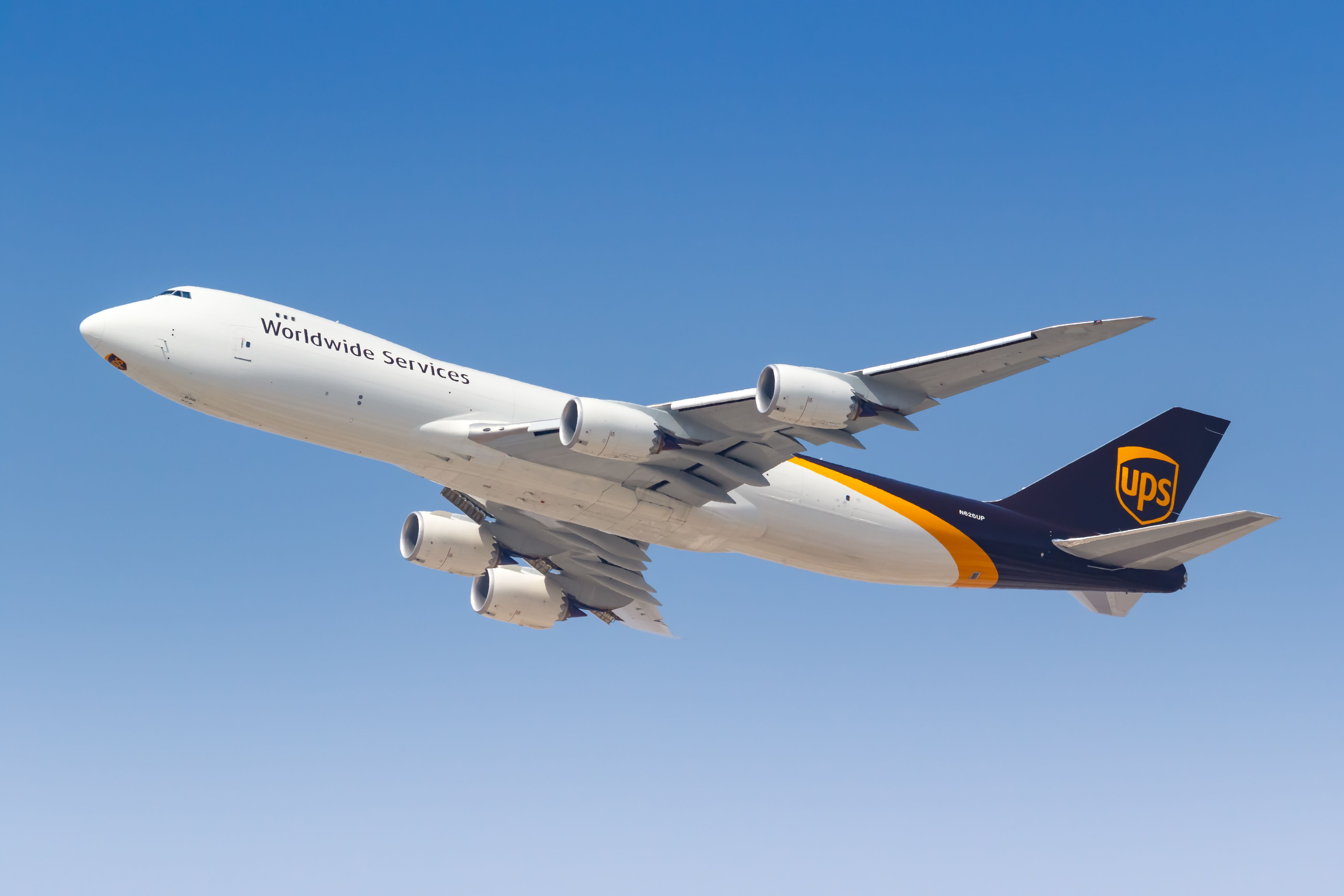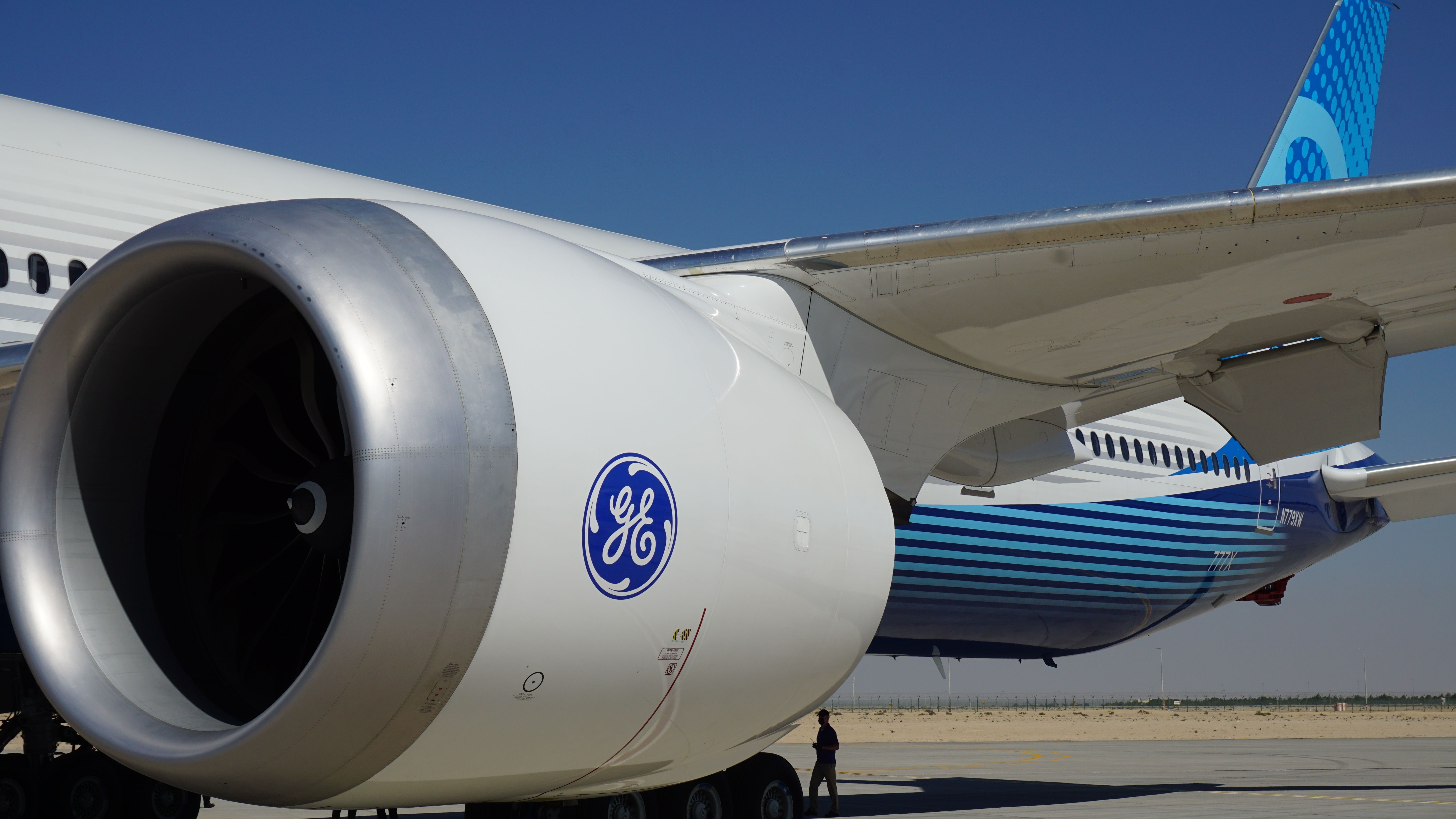Summary
- The Boeing 777X is considered the aircraft of the future, with fuel efficiency and capacity that make it suitable for high-demand routes.
- While the Boeing 747 carries more passengers and has a longer range, the 777X surpasses it in cargo capacity and fuel efficiency.
- The cost of operating the 777X is lower than the 747 due to newer technologies and larger engines, making it a better long-term investment for airlines.
Once the go-to jet for airlines around the world, the Boeing 747 days are now numbered, with the production line shut down, few remaining in passenger service, and even fewer available on the second-hand market. Airlines now looking for the next 'Jumbo Jet' might find the 777X to suit them nicely.
According to Boeing Marketing Vice President Randy Tinseth, the 777X is truly the aircraft of the future. In a statement reported by Business Insider, Tinseth shared the following words:
“The big aeroplane of the future for the aviation industry is going to be the Boeing 777-9X, It carries 400 passengers. It flies further than the 747 and the A380 do today.”
The Boeing 777X is a twin-engine large-capacity plane, that is fuel efficient and perfect for high-demand routes between two capital cities, such as London and New York.
It directly competes against the Airbus A350 and is a worthy replacement for both the 747 and its rival, the A380. But some airlines are not convinced. Lufthansa has repeatedly chosen the 747 over the 777 variants, claiming that the premium space afforded by the bigger aircraft is more useful. As Lufthansa Group CEO Carsten Spohr indicated in a statement:
"No airline in the world sells as many premium seats as Lufthansa, When we talk about an XL aircraft, we need 100 first and business class seats which nobody else has. That’s why we operate the 747-8 on routes where others operate the (Boeing) 777.”
But which airliner is truly better for airlines in today's world? Let's find out.
How we will compare the two planes?
As mentioned in previous comparison pieces, we will be focusing on each jet's commercial profitability. Imagine you are starting a new airline, or working for a national flag carrier, and you have to choose between the two options. Hence, whilst some aspects might be cool, such as the 747's cherished aviation legacy, they do not directly lead to profitability.
Additionally, we will admit that the 777X is brand new and the 747 is not even in production anymore. This difference in technology will be greatly apparent in fuel consumption and other factors. Nevertheless, some major airlines still keep their Boeing 747s flying today and have not placed 777X orders.
We will be primarily comparing the Boeing 777-9 and The Boeing 747-8I. Currently, over 360 orders for 777X family jets have been made, and a total of 48 747-8I aircraft have been delivered and are in service today.
Boeing 777X vs Boeing 747
|
Boeing 777X-9 |
Boeing 747-8 |
|
|
Cockpit crew |
Two |
Two |
|
Seating, 3-class |
349 (8F + 49J + 292Y) |
410 in 3-class |
|
Exit Limit (Total possible passengers in one class) |
475 |
605 |
|
Length |
251 ft 9 in (76.7 m) |
250 ft 2 in / 76.3 m |
|
Wingspan |
224 ft 7 in / 68.4 m |
|
|
Wing area |
554 m2 (5,960 sq ft), sweep 37.5°, 8.45 AR |
|
|
Tail height |
64 ft 7 in (19.7 m) |
63 ft 6 in / 19.4 m |
|
Cabin width |
20 ft (6.1 m) |
|
|
Maximum cargo capacity |
8,131 cu ft (230.2 m3) |
6,225 cu ft (176 m3) |
|
Maximum takeoff weight |
775,000 lb (351,534 kg) |
987,000 lb / 447,700 kg |
|
Maximum landing weight |
587,000 lb (266,000 kg) |
485,300 lb / 220,128 kg |
|
Fuel capacity |
52,300 US gal / 197,977 L |
63,034 US gal / 238,610 L |
|
Range |
7,525 nmi / 13,940 km |
8,000 nmi (15,000 km) |
|
Engine |
||
|
Thrust |
105,000 lbf (470 kN) |
66,500 lbf (296 kN) |
Passengers: Surprising for a 'replacement' plane, the Boeing 777X does not carry as many passengers as the 747, in any configuration. This is despite the two planes having almost the same dimensions length and width. Thus, it seems that the extra level on the Boeing 747 comes into its own. Winner: Boeing 747
Cargo Capacity: The 777X leads out ahead, transporting far more cargo than the 747. Winner: Boeing 777X
Fuel Capacity: The 747-8 instead carries more fuel than the 777X and thus leads to its higher range. Winner: Boeing 747
Range: The 747 has an extra range of approx 1000km over the 777-9. But, it's worth mentioning that the smaller 777-8 has a larger range than the 747. Winner: Boeing 747
What about fuel efficiency and operating costs?
Let's talk about the elephant in the room. The Boeing 777-9 has two engines, whilst the Boeing 747-8 has four. Originally designed to be capable of flying long, over-water routes (as a result of antiquated ETOPS restrictions), the Boeing 747 is stuck with engines that offer half the power of one 777X engine. But does mean that the Boeing 747 uses the same amount of fuel?
Unfortunately, the Boeing 747 is heavier than the 777X, plus it has four engines, not two. Clearly, it will be far more expensive to operate.
But just how much more expensive do you ask? Ty Joseph, an aviation expert, is able to give us a little more clarity on this issue.
The Boeing 747-8I/F burns ~8.83t per hour or about 10,114 L/hr at 929 km/hr @ 32,000 ft. That's a fuel cost of about $7,150.00 per hour or approximately $15.31 per seat per hour. Boeing states the total operating cost is closer to $13,450.00 per hour or about $28.80 per seat per hour.
Get the latest aviation news straight to your inbox: Sign up for our newsletters today.
According to Boeing, under regular conditions, the 777-200LR should cost around $9,750.00/hour to operate, with the 777-300ER at a cost of $10,250.00/hour to operate. In a two-class configuration, this is around $32.39/hour per seat for the -200LR and $27.12/hour per seat for the -300ER. About 60% of that is the cost fuel of fuel alone.
Naturally, the Boeing 777X incorporates newer technologies, composites, and larger engines, and is designed for rising fuel prices. And, as jet fuel prices continue to inflate, the savings between the 777X over the 747-8 will only become more stark.
Winner: Boeing 777X
What about fixed costs?
To bring back the argument we mentioned at the start, imagine that we are an airline and are looking between these two aircraft. How much would it cost us?
Currently, the 777-9 is on the market for $442.2 million, however, airlines which purchase multiple of the variant from the manufacturer will likely be able to receive a bulk discount. According to Boeing, a 747-8I is worth around $420 million, however, what the jet is truly worth is what a current owner is willing to sell the aircraft for.
Here is where a challenge emerges for airlines: take a gamble by placing an order for the 777-9, which will certainly take years to deliver, even if Boeing meets its goal of commencing aircraft deliveries in 2025, or try and hunt for a 747-8I on the second-hand market. Unsurprisingly, neither option is particularly appealing.
Winner: Tie
The Bottom Line
As usual, it depends on what you want it for. As the 777-9 is designed to replace the Boeing 747, it gets a little more interesting.
On one hand, the Boeing 747 can transport more people, fly further, and offer more space onboard. If you are a luxury carrier unconcerned with fuel costs and in need of a trusted aircraft, then perhaps the 747 is the way to go. The challenge that remains for you, however, is how to acquire aircraft which are no longer in production.
If you're willing to trust Boeing and do not fear a lengthy delivery timeline, the 777-9 is certainly the way to go. For many the savings made by the 777-9 make it the better plane, especially considering today's era of high operating costs and inflation. As we enter the age of higher fuel prices, the world of four engines is increasingly commercially unviable
However, the delays in the 777X's production make it a liability for some airlines, but the market for second-hand 747-8s is small (if even existent), and the jet is inefficient. In terms of high-capacity Boeing wide bodies, we are truly in an era with no easily viable option for most airlines.
Sources: Business Insider, Business Insider

